freedom of speech
Recently-elected Supreme Court Bar Association (SCBA) president and senior advocate MN Krishnamani has vowed to file cases for his digital-artist son Anirudh Krishnamani against the Karnataka state government and a Bangalore art gallery, which withdrew the son’s exhibited paintings on the direction of the city police.
The police had taken cognisance of an oral complaint by Bharatiya Janata Party (BJP) state media coordinator A.L. Shivakumar about the paintings depicting goddesses Kali, Mohini and Shiva-Sati in the nude.
Krishnamani Jr said:
This action of the police is completely against the fundamental rights enshrined in the Constitution. [Kali] is called Digambara, which means clad in space or, in other words, naked. [Mohini] is the goddess of seduction. She is supposed to look seductive.
He said the painting depicting Shiva-Sati kissing in each other’s embrace, “was inspired by Kalidasa’s Kumarasambhava. Anybody who has read this text will know that it is far more graphic in its description of the Shiva-Parvathi union than [the painting]”. [The Hindu]
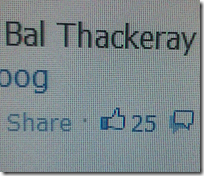 21-year old law aspirant Shreya Singhal, a graduate in astrophysics from the UK’s Bristol University, daughter of Supreme Court advocate Manali Singhal and grand daughter of the late Delhi high court judge Justice Sunanda Bhandare, challenged section 66A of the Information Technology Act in the Supreme Court today under which two women were booked for a comment critical of Bal Thackeray on Facebook 10 days ago.
21-year old law aspirant Shreya Singhal, a graduate in astrophysics from the UK’s Bristol University, daughter of Supreme Court advocate Manali Singhal and grand daughter of the late Delhi high court judge Justice Sunanda Bhandare, challenged section 66A of the Information Technology Act in the Supreme Court today under which two women were booked for a comment critical of Bal Thackeray on Facebook 10 days ago.
 A 21-year-old woman and her friend were arrested for allegedly posting and endorsing a comment on Facebook that was critical of the two-day bandh following the death of Mumbai politician Bal Thackeray on Saturday, according to several independent media reports.
A 21-year-old woman and her friend were arrested for allegedly posting and endorsing a comment on Facebook that was critical of the two-day bandh following the death of Mumbai politician Bal Thackeray on Saturday, according to several independent media reports.
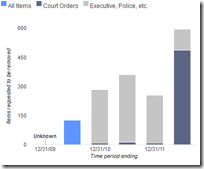 The Indian courts made 20 orders for the removal of 487 content items hosted on the internet by Google services between January and June 2012, setting a new record and keeping India’s second global place in Google’s internet censorship rankings, as the executive asked for personal data on 3,467 users of Google services.
The Indian courts made 20 orders for the removal of 487 content items hosted on the internet by Google services between January and June 2012, setting a new record and keeping India’s second global place in Google’s internet censorship rankings, as the executive asked for personal data on 3,467 users of Google services.
{youtube}Po8iuvy_Q9w|450|320{/youtube}
Current affairs, media and culture blog Newslaundry’s Madhu Trehan asks former Supreme Court Justice Markandey Katju, now the chairman of the Press Council of India (PCI), some tough questions about himself and freedom of speech (46 minute video interview). Is Katju’s bark not already bad enough, she asks, that you need more bite? As the interview proceeds, Katju’s fuse is lit several times, and barks and giggles ensue. Click through for a potted digest…
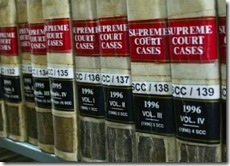 Publisher Lexis Nexis has obtained an injunction in the Lucknow District Court against Eastern Book Company (EBC) to prevent it from publicising that it was granted an interim injunction in the same court last month against Lexis Nexis for alleged plagiarism.
Publisher Lexis Nexis has obtained an injunction in the Lucknow District Court against Eastern Book Company (EBC) to prevent it from publicising that it was granted an interim injunction in the same court last month against Lexis Nexis for alleged plagiarism.
 Exclusive: The Delhi high court on Tuesday declined to grant interim injunction to pharma major Natco in its case of defamation against NUJS Kolkata professor and intellectual property blog SpicyIP’s founder Shamnad Basheer.
Exclusive: The Delhi high court on Tuesday declined to grant interim injunction to pharma major Natco in its case of defamation against NUJS Kolkata professor and intellectual property blog SpicyIP’s founder Shamnad Basheer.
 Freedom of speech is impossible to agree about. While hardly anyone will dispute that freedom of expression is essential for a democratic society and an effective free market, almost no one will be able to agree about exactly where to draw the line.
Freedom of speech is impossible to agree about. While hardly anyone will dispute that freedom of expression is essential for a democratic society and an effective free market, almost no one will be able to agree about exactly where to draw the line.
In one corner, fighting for unbridled expression in various degrees, you have a disparate group that may include various shades of liberals and conservatives, freedom fighters, anarchists, journalists, academics, libertarians, criminals, terrorists, artists, copyright pirates, pornographers and paedophiles.
 Today’s Legally India page in Mint: The typical citizen could be forgiven for fearing that the world’s largest democracy is hurtling towards George Orwell’s 1984 rather than 2013.
Today’s Legally India page in Mint: The typical citizen could be forgiven for fearing that the world’s largest democracy is hurtling towards George Orwell’s 1984 rather than 2013.
 In today’s edition of Mint: The good news for those who deal in news is that the Supreme Court decided against framing guidelines for covering so-called sub judice matters, or those before the courts.
In today’s edition of Mint: The good news for those who deal in news is that the Supreme Court decided against framing guidelines for covering so-called sub judice matters, or those before the courts.
The bad news is that by delivering what some analysts are calling an ambiguous judgement, the apex court may have well made it easier to muzzle the media and, far worse, institutionalized the process by which individuals and entities fighting cases can ensure that these aren’t covered till the order is passed.
 Four practising Supreme Court advocates are set to challenge the Delhi high court’s dismissal last week of their public interest litigation (PIL) challenging the Information Technology Act (IT Act) and Rules (Intermediaries Guidelines) and the government’s August order blocking hundreds of webpages, under the constitutional guarantee of freedom of speech and expression.
Four practising Supreme Court advocates are set to challenge the Delhi high court’s dismissal last week of their public interest litigation (PIL) challenging the Information Technology Act (IT Act) and Rules (Intermediaries Guidelines) and the government’s August order blocking hundreds of webpages, under the constitutional guarantee of freedom of speech and expression.
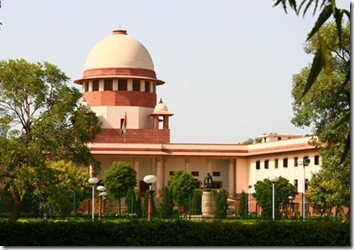 The Supreme Court today laid down a new doctrine that, if requested, would allow courts to temporarily ban media from reporting a case if it would adversely affect the trial, but the special constitutional bench of five judges declined to create wider guidelines on how the media should report court cases.
The Supreme Court today laid down a new doctrine that, if requested, would allow courts to temporarily ban media from reporting a case if it would adversely affect the trial, but the special constitutional bench of five judges declined to create wider guidelines on how the media should report court cases.
Government sends legal notices to account holder on Twitter, YouTube and Facebook who allegedly posted on their webpage inflammatory messages and morphed images related to ethnic violence in Assam.
Notices have been sent to “at least four” Twitter account holders, asking them to appear before a committee on 10 September at the office of the Computer Emergency Response Team. Details of other account holders have been asked for, to send notices.
Pavan Duggal, a cyber law expert, said the government can take action against any person who has published, transmitted or caused to be published or transmitted any such content under various provisions of the IT Act.
“A criminal case could be registered under the IT Act as well as Indian Penal Code,” he said.
Union home minister Sushil Kumar Shinde said:
Besides providing a pervasive infrastructure for discreet communication, cyberspace is proving to be a facilitator for malevolents seeking to enlist new recruits and to purvey a distorted version of the reality.
Anonymity that the user acquires in this medium can sometimes test the capacities of even the most experienced police investigator. Police forces will have to develop skills in this area not just for locating malicious content, but also for identifying those responsible for posting it. [Mint]
The Delhi high court dismissed a public interest litigation filed by a group of law students to quash the department of telecommunications’ notifications last month blocking hundreds of webpages, on Wednesday. The Supreme Court had also returned a petition challenging the block on 31 August, asking the petitioner to appear before the Delhi HC.
The bench of chief justice AK Sikri and justice Rajiv Sahai Endlaw in the high court said: "Let the affected party approach the court. We cannot treat this as PIL."
Telecom service providers, internet service providers, search engines, online payment sites and cyber cafes were, according to the petitioners, bearing the brunt of the curb on freedom of speech without being heard. [ET][Outlook India]
 Exclusive: Pharmaceutical company Natco has filed in the Delhi high court against intellectual property (IP) blog SpicyIP, claiming that the website published an article that allegedly contained “false, derogatory and defamatory” statements about the company.
Exclusive: Pharmaceutical company Natco has filed in the Delhi high court against intellectual property (IP) blog SpicyIP, claiming that the website published an article that allegedly contained “false, derogatory and defamatory” statements about the company.
The Ministry of Communications and IT, Department of Telecommunications on Saturday directed ISPs to block 76 webpages, including 10 handles on micro-blogging site Twitter, 12 pages on video-sharing site YouTube, 14 Facebook profiles, and blogs and other pages with religion-related content.
The order cites no reasons for the block, though the department later reportedly cited “communal tensions” following unrest and violence in the border districts of Assam.
Three similar directives followed until 21 August, blocking more Twitter accounts and hundreds of webpages. [ET][Orders]
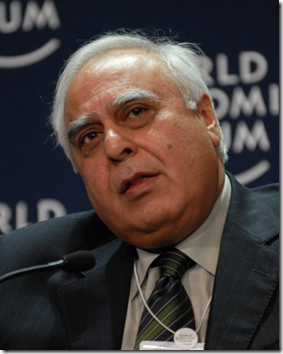 The Information Technology (Intermediaries Guidelines) Rules 2011 (The Rules) continue to breathe after the statutory motion to annul them moved by member of parliament (MP) from Kerala P Rajeeve was defeated by voice vote in the Rajya Sabha yesterday.
The Information Technology (Intermediaries Guidelines) Rules 2011 (The Rules) continue to breathe after the statutory motion to annul them moved by member of parliament (MP) from Kerala P Rajeeve was defeated by voice vote in the Rajya Sabha yesterday.
Telecom Minister Kapil Sibal was heard on Rajya Sabha TV saying: “We are more liberal than US and Europe but let’s not cut our arms.”
 Rajya Sabha’s member of parliament (MP) from Kerala, P Rajeeve, whose statutory motion to annul the IT (Intermediaries Guidelines) Rules 2011 is slated for discussion in Parliament tomorrow, aims to convene a meeting of MPs, internet societies, and bloggers in the first week of May to create awareness against the draconian effect of the rules.
Rajya Sabha’s member of parliament (MP) from Kerala, P Rajeeve, whose statutory motion to annul the IT (Intermediaries Guidelines) Rules 2011 is slated for discussion in Parliament tomorrow, aims to convene a meeting of MPs, internet societies, and bloggers in the first week of May to create awareness against the draconian effect of the rules.